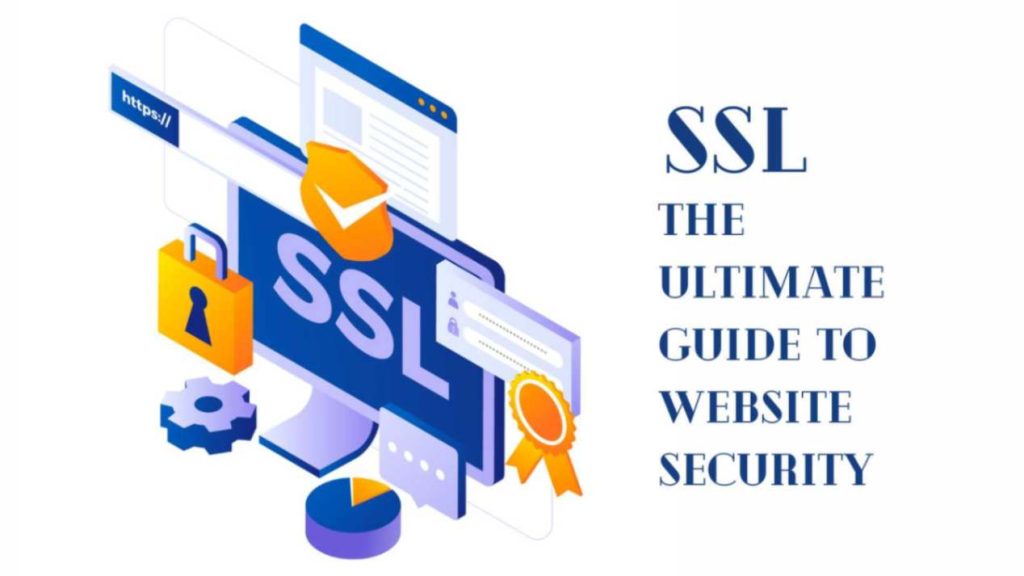Security has taken on utmost importance in the constantly increasing digital world. With cyber threats and data breaches on the rise, safeguarding sensitive information is no longer an option but a necessity. Enter SSL, the unsung hero of web security. This in-depth article will delve deeply into the realm of SSL (Secure Sockets Layer), examining what it is, how it functions, how important it is, and how to use it on your website.
Understanding SSL: What Is It?
Secure Sockets Layer, sometimes known as SSL, is a cryptographic system created to protect data transfer over the internet. It was initially developed by Netscape in the 1990s and has since evolved into Transport Layer Security (TLS), with the latest version being TLS 1.3.
How Does SSL Work?
SSL works by establishing an encrypted link between a web server and a user’s browser. This encryption ensures that data exchanged between the two remains confidential and secure. The process involves the following steps:
- Handshake: When a user visits an SSL-secured website, the browser requests the server’s SSL certificate. The server sends its certificate along with its public key.
- Public Key Encryption: The browser checks the SSL certificate against a list of trusted authorities. Once verified, it generates a session key and encrypts it with the server’s public key.
- Shared Secret: The server decrypts the session key using its private key, establishing a shared secret key for further encryption and decryption.
- Secure Data Transfer: With the shared secret key in place, data transmitted between the browser and the server is encrypted and decrypted seamlessly, ensuring confidentiality and integrity.
The Importance of SSL: Why You Need It
Now that we’ve covered the basics, let’s explore why SSL is so crucial for your website:
1. Data Encryption:
Personal data, login credentials, and financial information are among the sensitive data that is shielded from malicious actors during transmission using SSL encryption.
2. User Trust:
SSL certificates provide visual cues to users, such as the padlock icon and “https://” in the URL, assuring them that their connection is secure. This builds trust and confidence in your website.
3. SEO Benefits:
Search engines like Google prioritize secure websites in their rankings. Having an SSL certificate can improve your SEO performance and boost your visibility in search results.
4. Compliance:
Many industry regulations and standards, such as GDPR and PCI DSS, require the use of SSL to protect user data. Compliance is crucial for avoiding penalties and legal issues.
5. E-commerce Security:
For online businesses, SSL is a non-negotiable component of secure e-commerce transactions. It protects customer payment information and safeguards your reputation.
6. Malware Prevention:
SSL helps prevent man-in-the-middle attacks and phishing attempts by encrypting data and ensuring the integrity of communications.
Types of SSL Certificates
SSL certificates come in various types, each serving specific purposes. Here are the most common ones:
1. Domain Validated (DV) SSL Certificates:
These certificates verify domain ownership but do not provide extensive validation of the entity behind the website. They are typically used for basic encryption.
2. Organization Validated (OV) SSL Certificates:
OV certificates validate domain ownership and provide additional verification of the organization behind the website. They display the organization’s name in the certificate.
3. Extended Validation (EV) SSL Certificates:
EV certificates offer the highest level of validation. They involve a rigorous vetting process to confirm the legal entity behind the website. EV certificates display the organization’s name prominently in the browser’s address bar.
4. Wildcard SSL Certificates:
Wildcard certificates secure a primary domain and its subdomains. For example, a wildcard certificate for “example.com” would also cover “blog.example.com” and “shop.example.com.”
5. Multi-Domain (SAN) SSL Certificates:
Multi-Domain certificates allow you to secure multiple domain names with a single certificate. They are ideal for businesses with several websites or domains.
Steps to Implement SSL on Your Website
Now that you understand the significance of SSL, here’s how to implement it:
1. Choose an SSL Certificate:
Select the type of SSL certificate that best suits your needs. Consider factors such as the number of domains you want to secure and the level of validation required.
2. Purchase an SSL Certificate:
Buy an SSL certificate from a reputable Certificate Authority (CA) or a trusted SSL reseller. Some web hosting providers also offer SSL certificates as part of their hosting packages.
3. Generate a Certificate Signing Request (CSR):
You’ll need to create a CSR from your web server or hosting control panel. This CSR contains your server’s public key and other necessary information.
4. Submit the CSR:
Submit the CSR to the CA when purchasing the SSL certificate. The CA will use this information to generate your SSL certificate.
5. Install the Certificate:
Install the SSL certificate on your web server following the CA’s instructions or your hosting provider’s guidelines.
6. Update Your Website:
Once installed, update your website configuration to use HTTPS instead of HTTP. Update all internal links and resources to use secure URLs.
7. Test and Verify:
Perform thorough testing to ensure that your SSL certificate is correctly installed and that your website functions without issues.
8. Monitor and Renew:
Regularly monitor your SSL certificate’s expiration date and renew it before it expires to maintain continuous security.
SSL is not just a security protocol; it’s a trust-builder, an SEO booster, and a compliance necessity. Implementing SSL on your website ensures the protection of sensitive data, builds trust with users, and can positively impact your search engine rankings.
In a digital landscape where data breaches and cyber threats are ever-present, SSL is your shield against the unknown. Don’t wait—secure your website with SSL today and enjoy the benefits of a safer, more trustworthy online presence. Your website visitors and search engine rankings will thank you.
